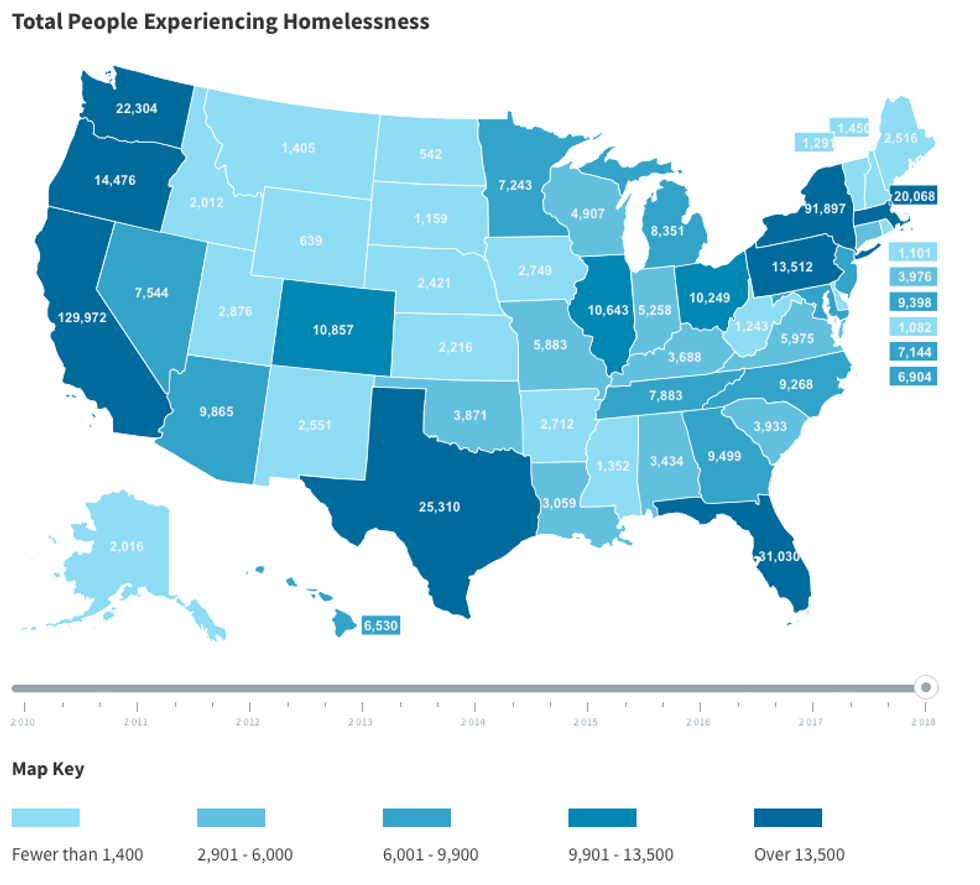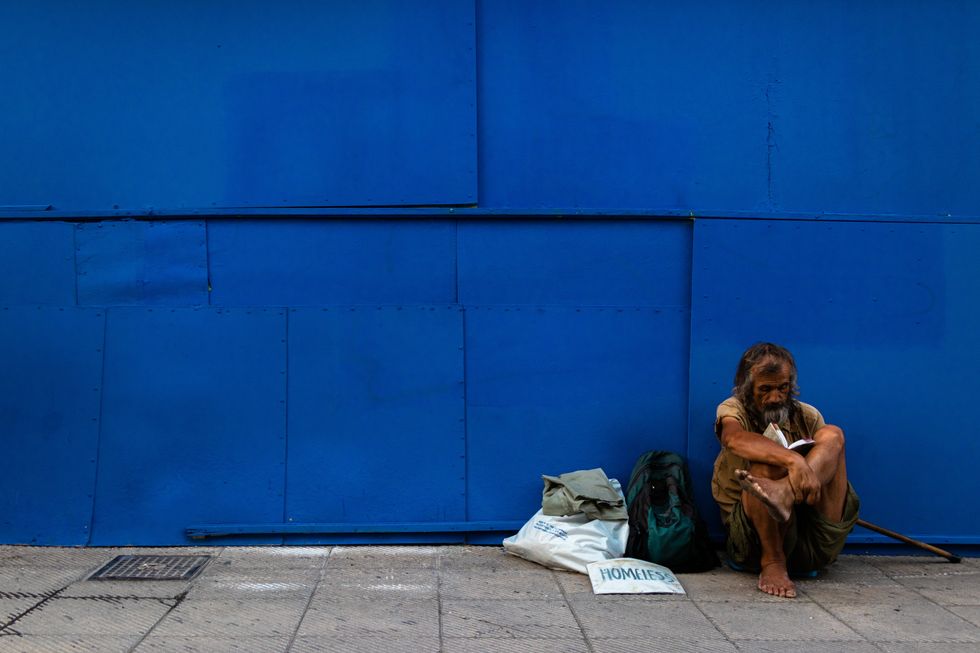People throughout the United States have become victim to falling under the poverty line and lacking the economic security to provide for their basic needs. Although this predicament can be disastrous for people and their families, a large chunk of mid/lower class are still able to secure housing and food. While for 552,830 Americans this isn't always the case.
The homelessness epidemic struck the United States even at the beginning of its formation. For century's, this issue has existed as the country around it develops.

As shown by the map above, homelessness is concentrated in places that shelter large cities; full of people looking for reliable mass transit, programs, and shelters, nearby amenities, as well as the hope of finding employment. Unfortunately, cities do not have enough resources and strong enough ability to financially support and provide for these people as the numbers continue to grow. As cities lack means to get people off the street, the maximal influx of drugs and lack of work encourage and in prison their victims in the cycle of homelessness.
After researching areas with a high concentration of homelessness, like the whole of New York City, neighborhoods such as Skid Row in LA, and cities that have homeless prevention initiatives, I have found that the main causes of homelessness are lack of affordable housing/low wages/unemployment, mental illness, substance abuse, and domestic violence. Broken down further, the point of concern for families is poverty, for women its domestic violence, and men (the largest group in the homeless population) is mental illness/substance abuse.
To try to address these chief matters, I believe the government needs to take initiative and take a top-down approach to get these people off the streets. In the documentary "The Damage Done: The Unwanted", they show the police in Philadelphia trying to work with the homeless population instead of against them. Meaning they still do their job and supervise the number of people camped on the streets and force them to vacate, but taking into account that arresting them solves nothing and it's better to get them the help they need to they want to get off the street.
In programs like these, once someone finishes their stint in rehab and is clean for a certain amount of time, instead of throwing them back on the street to have nothing else to turn to, they provide them with an adequate sized apartment that supplies their basic needs and allows people to have a place to get back on their feet and find employment.
I love this concept because although it won't work for everyone, for you have to want to get clean and change your life, it provides many people suffering from homelessness with a second chance to turn their lives around. Even though it may cost more money to establish, I believe with more initiatives like this, cities and their governments will be able to form a better grasp on controlling this problem.



















